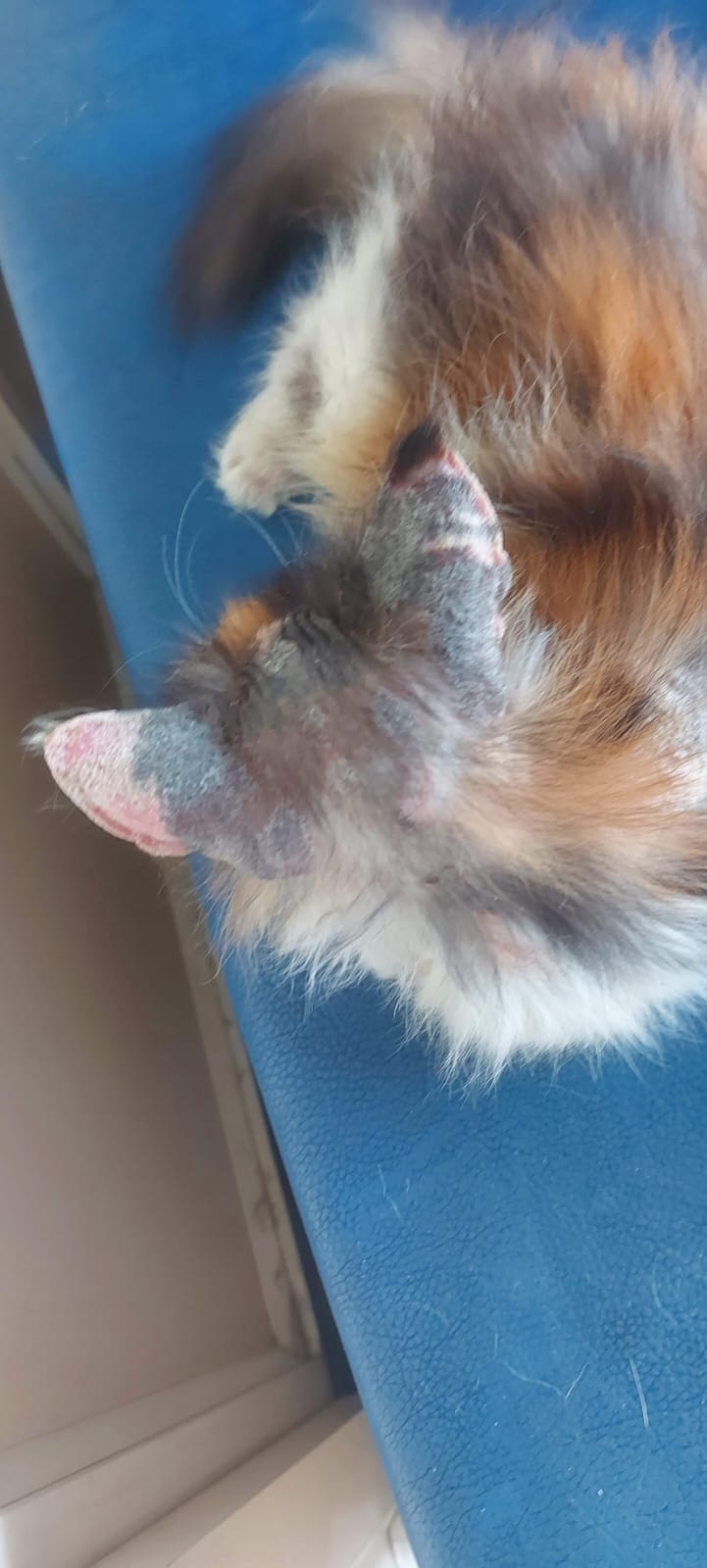
CATS ARE NOT DOGS
Poor kity with the severe skin infection was presented to noida pet clinic with severe itching. managed well at noida petclinic.
#catclinicnearme #cattreatment #catcare #catdoctor
some tips fot the owners
The treatment for mites in cats depends on the type of mite infestation your cat has. Here are some common treatments:
Ear Mites (Otodectes cynotis):
Topical medications: Your veterinarian may prescribe ear drops or topical medications containing ingredients such as selamectin, moxidectin, or imidacloprid to kill the mites. These medications are typically applied directly into the ear canal.
Cleaning: Your veterinarian may recommend cleaning your cat's ears to remove debris and discharge caused by the mites.
Demodex Mites:
Treatment of underlying conditions: If demodicosis is suspected, your veterinarian will likely treat any underlying conditions contributing to your cat's weakened immune system.
Medications: Treatment may involve topical medications or oral medications such as ivermectin or milbemycin to kill the mites. These medications may need to be administered over several weeks.
Cheyletiella Mites (Walking Dandruff):
Topical medications: Your veterinarian may prescribe medicated shampoos, dips, or sprays containing ingredients such as pyrethrins, selamectin, or fipronil to kill the mites and soothe the skin.
Cleaning: Regular grooming and bathing can help remove mites and alleviate symptoms.
Sarcoptes Scabiei Mites:
Oral medications: Your veterinarian may prescribe oral medications such as ivermectin or selamectin to kill the mites and alleviate symptoms.
Topical medications: Medications containing ingredients such as selamectin or fipronil may also be used topically to treat sarcoptic mange.
In addition to these treatments, it's essential to follow your veterinarian's recommendations for cleaning your cat's environment to prevent reinfestation. Regular grooming, vacuuming, and washing bedding can help eliminate mites and their eggs from your cat's surroundings.




